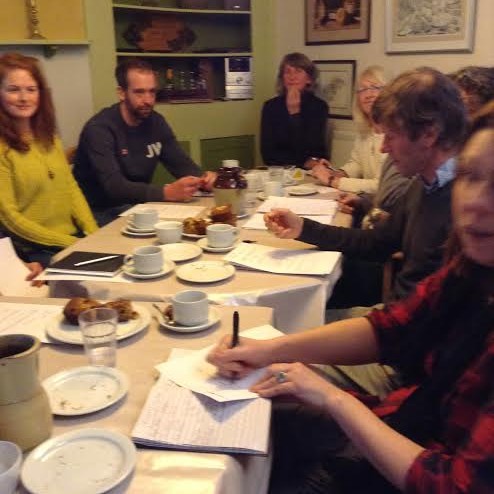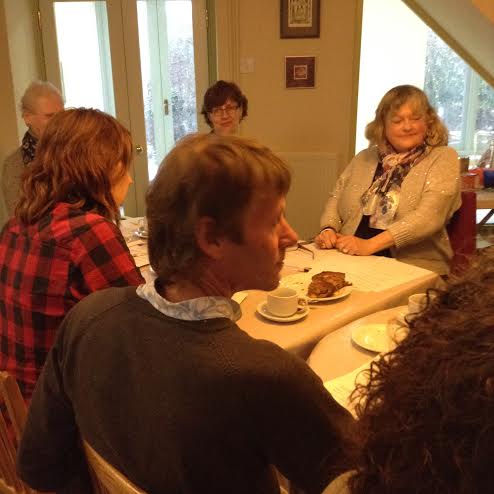You may have had the opportunity to catch a performance of Shot At Dawn in Dorset over the last few weeks which has been earning fantastic reviews – and rightly so. Writer and Artistic Director, John Foster, kindly gave a pre-performance screenwriting workshop for Dorset Writers Network at Bridport Arts Centre.
John gave an overview of how to approach a project from a screenwriters’ point of view. An immense challenge to cover such a broad and detailed subject in an hour and a half but I came away with lots of useful insights that, even if I don’t use them myself, can pass on to other writers who may be in need of a few basic starting points.
The main difference I found was that, although structure, character and dialogue are as important as when writing a novel, it pays to ‘think pictures’ and approach your idea from the visual aspect of telling your story. John provided a useful handout that presented the structure of a screenplay entirely in ‘pictures’ and it was quite easy to see from it how to build a story in this way.
For example:
‘Plump, juicy grapes growing up the wall.
At the window. An elderly woman looking out.’
And so on – I found that incredibly insightful, having zero knowledge of screenwriting.
Producers are always looking for people who can write pictures as opposed to dialogue. They are looking for unique writing ‘voice’ – basically an original way to tell a story. The main points I have taken away are:
If it is painful, write it.
If your ears are burning it’s a sign that you are writing something good.
Write about something that fires you up.
Who do I want the audience to really care about?
Can the story be told in sound and images? Do you have any sound motifs that give added depth?
Think camera. It is most important to think visually (but be careful how you put it on the page).
Invest in character and atmosphere and, as in all writing mediums – show not tell.
When you’ve finished your script make sure you are sending it out to the right people. Do your market research.
I asked about his own writing practice and John described it as an organic process that grows and develops the more he writes. Ideas, he says, come from writing.
So there you have it. It’s no good thinking about it, get the words on the page, paint those pictures. Just do it.
John Foster teaches screenwriting at Bournemouth University and Regent’s University, London. He has published fiction in the Guardian and Spectator and written for radio and theatre. Screen credits include many episodes for television drama series: Z-Cars, Softly Softly, Crown Court, Emmerdale, Juliet Bravo, Rockliffe, The Bill. John has written single dramas and dramadocs, including a BAFTA award-winning BBC Omnibus on Raymond Chandler. The movie of his screenplay Letters from a Killer featured Patrick Swayze in the lead role. He is contributor to the award-winning crime collection, Mean Time. John is currently writing for the theatre, having helped found Doppelganger Productions, a theatre production company, of which he is Artistic Director.
www.dopplegangerproductions.com







